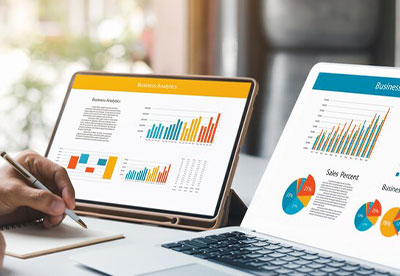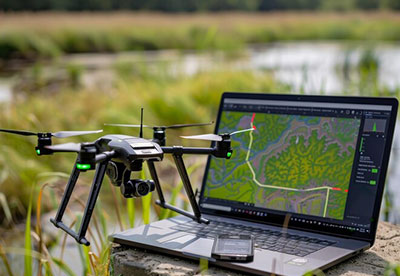You might be surprised that AI is already a thing of the past, it is not something that has recently revolutionized the world, but we are already surrounded by it in our daily lives that we were not aware of. From voice assistants in mobile phones to location tracking, customized content in our social media feed to suggested playlists, and whatnot.
But with the advent of social media and all the buzzwords created, Artificial Intelligence has been accelerated to its best to ease the operation of any industry.
At this point, AI is everywhere and is here to stay. In pursuit of outpacing and staying ahead of the game, companies are looking for solutions that can help them find the maximum value from their data and provide strict data governance and security. The AI Era has marked a paradigm shift in the way through which organizations can leverage data.
Growing data volume and the need to manage it highlight a growing concern for data privacy as cyber threats have led to the establishment of strict protocols for data protection to safeguard against breaches and data leaks. Traditional data governance methods with human intervention are not a promising approach when data grows exponentially.
But wait, how about automating the whole process and leveraging better data security?
AI-driven data governance could help!
Let’s unlock ways through which AI is transforming data governance practices-
Track Data Sources for Better Security
For data governance purposes, it is significant to detect the data sources, and doing this manually for large enterprises is a time-consuming process. Integration of AI-data discovery tools tracks the sources of data such as databases and file type and simplifies the whole data governance process.
Enables Data Classification
A large amount of data automatically gets classified based on AI-powered machine learning algorithms. It automatically classifies the data that is sensitive and requires attention on an immediate basis, allowing organizations to prioritize encryption efforts. Additionally, AI-based classification reduces the risk of unauthorized access to data, by giving access to only authorized systems.
Metadata Extraction to Identify Data Context
Metadata plays a significant role in providing the context and structure of large data sets. AI extracts Metadata from different data sources having distinguished data types, and data schemes and facilitates categorizing the data based on their different features. It helps in identifying the sensitive data.
Real-time Monitorization of Anomalies and Threats
Manual identification of threats across large datasets gets time-consuming and does not assure accuracy, while AI-enabled threat detection continuously monitors the trends and patterns among the data and predicts risks, offering an impenetrable defense. Thus, AI tools notify the risks associated with authorities on time before data is compromised.
Controls Data Access
It’s a critical aspect of data governance, managing who can access the sensitive data, what actions they can take, and under what conditions. AI-driven access control solutions take care of all these, reducing the risk of unauthorized access and ensuring data governance.
Final Words
AI holds enough power to bring transformative change. Today organizations have recognized the limitations of traditional data governance methods. It’s not about replacing the traditional ways; it’s about boosting data security by leveraging the best of technology. Artificial Intelligence with its historical data analysis, can predict potential data breaches, enabling organizations to proactively address the issues in advance.
We at Canopus Infosystems can better harness the power of AI for data governance to handle the sheer volume and complexity of data by adhering to strict data security. Our Intelligent solutions can automate many data management tasks including data migration, governance, cleansing, and data categorization.
2 mins read

















